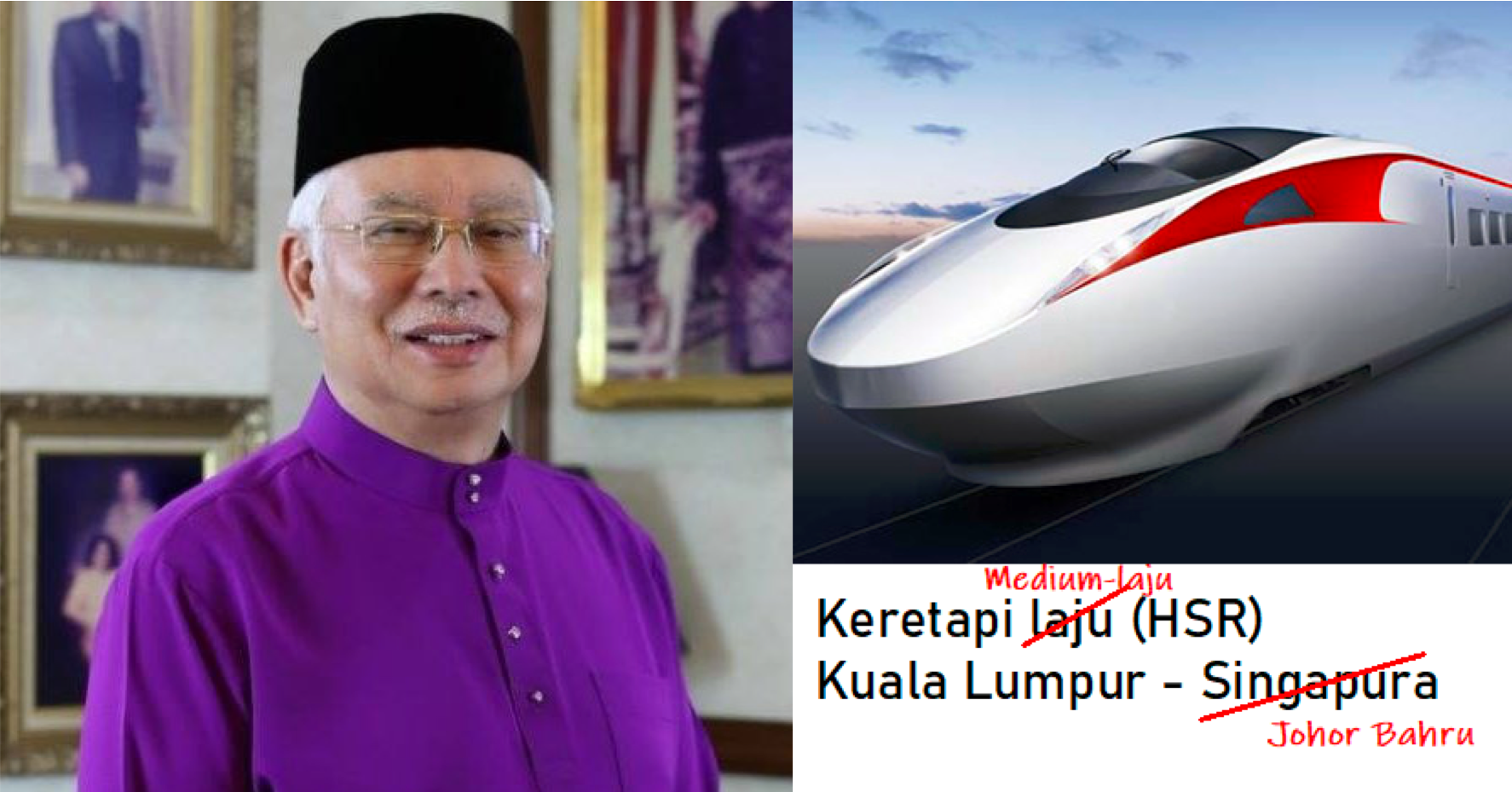The KL-SG High-Speed Rail (HSR) project between Singapore and Malaysia has officially been terminated.
As Malaysia has allowed the deal to lapse, they are legally bound to compensate Singapore for the costs incurred by the latter.
But at least one Malaysian does not seem pleased about the news.
Former Prime Minister Najib Razak shared a Facebook post on Jan. 1, shortly after the joint statement was released by both countries, enumerating several criticisms of Malaysia's decision.
The photo accompanying the post crossed out "Singapore" and added "Johor", the new final stop of the HSR. The word laju (high-speed) was also crossed out and replaced with "medium-laju", or medium-speed.
The HSR was formally proposed and agreed under Najib's government, back in 2013. The HSR was envisioned as a way to boost economic growth and strengthen links between the two countries.
However, Najib lost the 2018 general election, and while his party found its way back into power in 2020, he does not hold a formal position within the government of Prime Minister Muhyiddin Yassin.
No Singapore, lower demand
Najib cited "media reports and internal sources", saying that the HSR would be replaced by a line between KL and Johor using existing Electric Train Service technology, which would not be as fast.
Najib pointed out that the cost of constructing this new line is not that different compared to the cost of the HSR in the first place.
He also examined the economic drawbacks of cutting Singapore out of the HSR, should Malaysia decide to go ahead instead but have it stop in Johor and not Singapore.
First, the expected number of passengers would shrink with the reduced demand, from 8.4 million to 4.2 million by 2031.
This would impact ticket revenue, as Najib believes that Singaporean passengers would be willing to pay a higher price for tickets.
But without Singaporean passengers, a HSR is in danger of making a loss every year, which would lead to the Malaysian government having to bail them out.
Najib predicts that this would cost the Malaysian government "trillions" of ringgit in benefits by 2050.
KLIA stop not the real reason
Najib said that the reason that will be given for Malaysia's decision is that Singapore did not agree to allow the HSR to connect to KL International Airport (KLIA).
However, he said this is "not true."
Najib elaborated that the original plan was for the HSR to end in Bandar Malaysia, and for an Express Rail Link (ERL) station to be built in Bandar Malaysia, as the KL Sentral-KLIA ERL track is near to Bandar Malaysia.
But without the HSR ending in Bandar Malaysia as originally envisioned, Najib speculated that the Bandar Malaysia project would not achieve its development potential of RM140 billion (S$46 billion).
Najib added:
"But one benefit for the Malaysian government is that it can make all the procurement decisions and award contracts to anyone on its own, compared to the joint venture model where all procurement and selection of vendors had to be made together and monitored by both countries."
Related story:
Top image from Najib Razak's Facebook page.
If you like what you read, follow us on Facebook, Instagram, Twitter and Telegram to get the latest updates.
